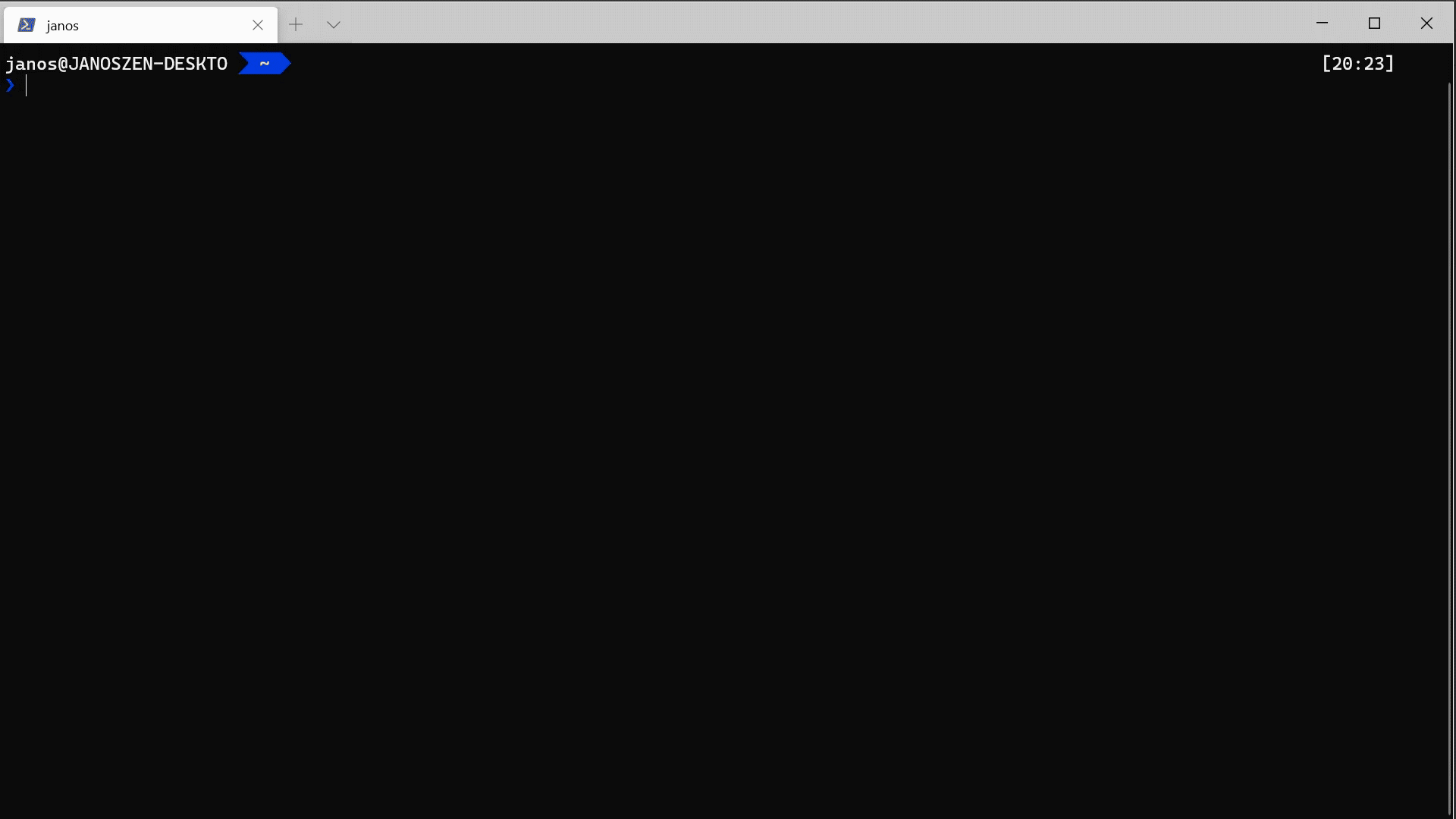https://github.com/ContainerSSH/ContainerSSH
ContainerSSH: Launch containers on demand
https://github.com/ContainerSSH/ContainerSSH
containers devsecops docker kubernetes security security-tools ssh
Last synced: 12 months ago
JSON representation
ContainerSSH: Launch containers on demand
- Host: GitHub
- URL: https://github.com/ContainerSSH/ContainerSSH
- Owner: ContainerSSH
- License: apache-2.0
- Created: 2020-06-03T21:57:39.000Z (almost 6 years ago)
- Default Branch: main
- Last Pushed: 2025-03-13T01:40:11.000Z (12 months ago)
- Last Synced: 2025-03-13T11:02:37.455Z (12 months ago)
- Topics: containers, devsecops, docker, kubernetes, security, security-tools, ssh
- Language: Go
- Homepage: https://containerssh.io/
- Size: 4.98 MB
- Stars: 2,780
- Watchers: 21
- Forks: 85
- Open Issues: 49
-
Metadata Files:
- Readme: README.md
- Contributing: CONTRIBUTING.md
- License: LICENSE
- Code of conduct: CODE_OF_CONDUCT.md
- Audit: auditlog/codec/Decoder.go
- Security: SECURITY.md
Awesome Lists containing this project
- awesome-hacking-lists - ContainerSSH/ContainerSSH - ContainerSSH: Launch containers on demand (Go)
- awesome-starred - ContainerSSH/ContainerSSH - ContainerSSH: Launch containers on demand (docker)
- awesome-cli-apps-in-a-csv - ContainerSSH - An SSH Server that Launches Containers in Kubernetes and Docker on demand. (<a name="vm"></a>Containerization and virtualization)
- awesome-cli-apps - ContainerSSH - An SSH Server that Launches Containers in Kubernetes and Docker on demand. (<a name="vm"></a>Containerization and virtualization)
- awesome-github-repos - ContainerSSH/ContainerSSH - ContainerSSH: Launch containers on demand (Go)
- awesome-repositories - ContainerSSH/ContainerSSH - ContainerSSH: Launch containers on demand (Go)
README
[](https://containerssh.io/)
An SSH Server that Launches Containers in Kubernetes and Docker
[](https://containerssh.io/)
[](https://github.com/containerssh/containerssh/actions)
[](https://github.com/containerssh/containerssh/releases)
[](http://hub.docker.com/r/containerssh/containerssh)
[](https://goreportcard.com/report/github.com/containerssh/containerssh)
[](LICENSE.md)
[](https://app.fossa.com/projects/git%2Bgithub.com%2FContainerSSH%2FContainerSSH?ref=badge_shield&issueType=license)
## ContainerSSH in One Minute
In a hurry? This one-minute video explains everything you need to know about ContainerSSH.
[](https://youtu.be/Cs9OrnPi2IM)
## Need help?
[Join the #containerssh Slack channel on the CNCF Slack »](https://communityinviter.com/apps/cloud-native/cncf)
## Use cases
### Build a lab
Building a lab environment can be time-consuming. ContainerSSH solves this by providing dynamic SSH access with APIs, automatic cleanup on logout using ephemeral containers, and persistent volumes for storing data. **Perfect for vendor and student labs.**
[Read more »](https://containerssh.io/usecases/lab/)
### Debug a production system
Provide **production access to your developers**, give them their usual tools while logging all changes. Authorize their access and create short-lived credentials for the database using simple webhooks. Clean up the environment on disconnect.
[Read more »](https://containerssh.io/usecases/debugging/)
### Run a honeypot
Study SSH attack patterns up close. Drop attackers safely into network-isolated containers or even virtual machines, and **capture their every move** using the audit logging ContainerSSH provides. The built-in S3 upload ensures you don't lose your data.
[Read more »](https://containerssh.io/usecases/honeypots/)
## How does it work?

1. The user opens an SSH connection to ContainerSSH.
2. ContainerSSH calls the authentication server with the users username and password/pubkey to check if its valid.
3. ContainerSSH calls the config server to obtain backend location and configuration (if configured)
4. ContainerSSH calls the container backend to launch the container with the
specified configuration. All input from the user is sent directly to the backend, output from the container is sent
to the user.
[▶️ Watch as video »](https://youtu.be/Cs9OrnPi2IM) | [🚀 Get started »](https://containerssh.io/quickstart/)
## Demo

[🚀 Get started »](https://containerssh.io/quickstart/)
## Verify provenance
Each of the releases come with a SLSA provenance data file `multiple.intoto.jsonl`. This file can be used to verify the source and provenance of the produced artifacts with [`slsa-verifier`](https://github.com/slsa-framework/slsa-verifier).
This aims to ensure the users that the artifacts are coming from containerssh.
An example of verification :
```sh
slsa-verifier verify-artifact \
--provenance-path \
--source-uri github.com/containerssh/containerssh
```
If the verification is successful, the process should produce the following output :
```
Verifying artifact : PASSED
PASSED: Verified SLSA provenance
```
## Contributing
If you would like to contribute, please check out our [Code of Conduct](https://github.com/ContainerSSH/community/blob/main/CODE_OF_CONDUCT.md) as well as our [contribution documentation](https://containerssh.io/development/).